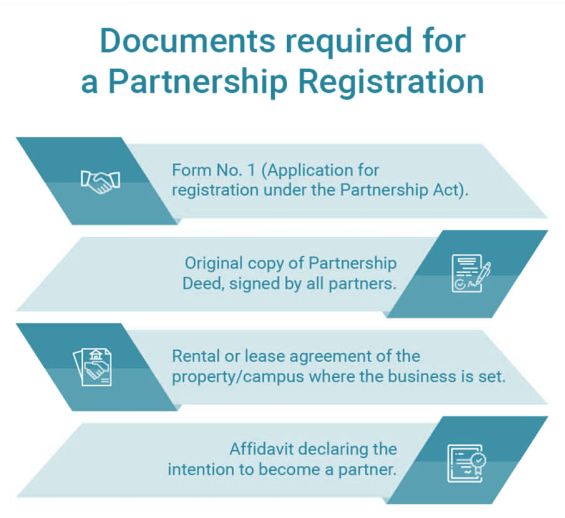Registration Services
Leading of Company Registration Services, GST Registration Services, Import – Export Code Registration Services, LLP Registration Services, MSME Udyog Aadhar Registration Services, Online Ngo Registration Services and Partnership Firm Registration Services from Baghpat.
Preferred Buyer From
| Location | Anywhere in India |
We are a leading name in the field of offering Company Law Consultancy Services. With Companies functioning in India governed by Companies Act, 2013, each company needs to get registered with Registrar of Companies (ROC) and file necessary documents for different statutory requirements.
Mainly, Indian companies are of two types –
Private Limited Company :
- Where maximum numbers of members are 50
- It prohibits any invitation to public to subscribe shares/debentures
- Restrict right to transfer its shares
Public Limited Company :
- Invite public to subscribe shares or debentures
- No limit on maximum members
Formation of Private/ Public Limited company
The process that involves formation of Private/ Public Limited company include drafting of memorandum & article of association of companies and converting a Private Company into Public company and Public Ltd. into a Private Ltd. The other steps that are part of formation include Changing name of company, Change of registered office, Alteration of main object of company and inclusion of new business in memorandum of company, Statutory meeting & report, Appointment of directors and their remuneration, Holding & subsidiary company, Inter corporate investments; Amalgamation, merger and acquisition of companies; Payment of dividend by companies.
Further, the Company Law consultancy services offered are designed to serve the demands of all big and small type of companies regardless of size who are regulated by Companies Acts 2013. Other than this, the Company Law Matters Consultancy service offered takes care of company’s legal compliance.
Here, our team of experts assists firms to :
- Interpret and comply with rules and regulations
- Smoothly continue to operate in chosen sectors
Some of the sections of Companies Act where we hold expertise in providing guidance/assistance/interpretation to Company Law include :
Company formation :
- Company secretarial matters like necessary companies House filings
- Accounting matters like statutory disclosures, deadlines and exemptions
- Matters affecting share capital and distributions
Statutory Audit :
- Statutory provisions that relate to different meetings like Statutory Meetings, Board Meetings
- Seeking Licenses and Approvals for start-up
- Other different provisions as applicable to Company
Preferred Buyer From
| Location | Anywhere in India |
What is GST Registration
In the GST Regime, businesses whose turnover exceeds Rs. 40 lakhs* (Rs 10 lakhs for NE and hill states) is required to register as a normal taxable person. This process of registration is called GST registration. For certain businesses, registration under GST is mandatory. If the organization carries on business without registering under GST, it will be an offence under GST and heavy penalties will apply. GST registration usually takes between 2-6 working days. We’ll help you to register for GST in 3 easy steps. *CBIC has notified the increase in threshold turnover from Rs 20 lakhs to Rs 40 lakhs. The notification will come into effect from 1st April 2019.
Who Should Register for GST?
- Individuals registered under the Pre-GST law (i.e., Excise, VAT, Service Tax etc.)
- Businesses with turnover above the threshold limit of Rs. 40 Lakhs* (Rs. 10 Lakhs for North-Eastern States, J&K, Himachal Pradesh and Uttarakhand)
- Casual taxable person / Non-Resident taxable person
- Agents of a supplier & Input service distributor
- Those paying tax under the reverse charge mechanism
- Person who supplies via e-commerce aggregator
- Every e-commerce aggregator
- Person supplying online information and database access or retrieval services from a place outside India to a person in India, other than a registered taxable person
- CBIC has notified the increase in threshold turnover from Rs 20 lakhs to Rs 40 lakhs. The notification will come into effect from 1st April 2019.
Documents Required for GST Registration
- PAN of the Applicant
- Aadhaar card
- Proof of business registration or Incorporation certificate
- Identity and Address proof of Promoters/Director with Photographs
- Address proof of the place of business
- Bank Account statement/Cancelled cheque
- Digital Signature
- Letter of Authorization/Board Resolution for Authorized Signatory
Penalty for not registering under GST
- An offender not paying tax or making short payments (genuine errors) has to pay a penalty of 10% of the tax amount due subject to a minimum of Rs.10,000.
- The penalty will at 100% of the tax amount due when the offender has deliberately evaded paying taxes
Preferred Buyer From
| Location | Anywhere in India |
- No export or import shall be made by any person without an Importer Exporter Code (IEC) Number unless specifically exempted. An Importer/Exporter Code (IEC) number shall be granted on application to the competent authority.
- An application for grant of IEC number shall be made by the Registered/Head Office of the applicant to the licensing authority concerned in the form specified and shall be accompanied by documents prescribed therein.
- An Import Export Code No allotted to an applicant shall be valid for all its branches/divisions/units/factories as indicated on the IEC number.
- Where an IEC Code/ Import Export Code No is lost or misplaced, the issuing authority may consider requests for grant of a duplicate copy of IEC number, if accompanies by an affidavit.
- If an IEC holder does not wish to operate the allotted IEC number, he may surrender the same by informing the issuing authority. On receipt of such intimation, the issuing authority shall immediately inform all the RBI/Customs/Licensing authorities that the said IEC number has become inoperative.
- If there is any change in the name/address or constitution of IEC holder/licensee/Actual User eligible for import without a licence/recognised status holders, as the case may be, shall cease to be eligible to import or export against the licence/IEC Number or any other facility permitted under the Policy and Handbook, after expiry of 60 days from the date of such change in his name or constitution, unless in the meantime,the IEC holder/licensee/status holders has got the consequential changes effected in the IEC number/licence or the recognition certificate, as the case may be, by the concerned licensing authority. the Actual User has got the consequential changes effected from the concerned authority in the Industrial Licence issued by the Secretariat for Industrial Assistance (Ministry of Commerce and Industry) or Certificate of Registration as an Actual User issued by Director of Industries of the State Government or has received an acknowledgement for filing of a memorandum with the Secretariat for Industrial Assistance. Provided, however, the licensing authority issuing the IE Code may, condone the delay on payment of a penalty of Rs.5000/-.
Preferred Buyer From
| Location | Anywhere in India |
Pre-requisites for registering a LLP-
- Minimum 2 Partners (Individual or body corporate)
- Minimum 2 Designated Partners who are individuals and at least one of them
- should be resident in India.
- Digital Signature Certificate
- LLP Name
- LLP Agreement
- Registered Office
Pre-requisites for registering a LLP
An LLP should have minimum 2 partners. In case any Body Corporate is a partner, then it will be required to nominate any person (natural) as its nominee for the purpose of the LLP.
Partner of LLP can be consisted of
- Companies incorporated in and outside India
- LLP incorporated in and outside India
- Individuals Resident in and outside India
Partners of LLP
Every LLP should have minimum 2 designated partners who are individuals and at least one of them should be resident in India. A person or nominee of a body corporate, intending to be appointed as who is appointed as designated partner of LLP should hold a Designated Partner Identification Number (DPIN) allotted by the Ministry of Corporate Affairs. DPIN can be obtained by submitting application along with address proof and identity proof of the individuals.
Digital Signature Certificate
All forms for registration of LLP shall be filed online after signing digitally and for this purpose, one of the designated partners shall take digital signature certificate.
LLP Name
Selection of business name is crucial for the image of your venture. You select a name which reflects the business you plan. Ensure selected name satisfy LLP Name Guidelines of Ministry of Corporate Affairs.
LLP Agreement
Like partnership, partners of LLP can frame agreement for defining their terms, profit sharing ratio etc. The basic contents of Agreement are, Name of LLP, Name of Partners and Designated Partners, and Form of contribution, Profit Sharing ratio and Rights and Duties of Partners. In case no agreement is entered into, the rights & duties as prescribed under Schedule I to the LLP Act shall be applicable. It is possible to amend the LLP Agreement but every change made in the said agreement must be intimated to the Registrar of Companies.
Registered Office
The Registered office of the LLP is the place where all correspondence related with the LLP would take place, though the LLP can also prescribe any other for the same. A registered office is required for following purposes. At the time of incorporation, it is necessary to submit proof of ownership or right to use the office as its registered office with the Registrar of Companies.
Preferred Buyer From
| Location | Anywhere in India |
UdyogAadhar is to simplify the process for the business owners to register their business under Micro Small Medium Enterprise or MSME.
UdyogAadhar Registration Benefits :
- Easily Open Current Account
- Tax Benefits
- Tax Apply Govt. Tenders Easily
- Easy to get bank loan
- Tax Protection Against delayed payment
- Concession in Electricity Bills
- Octroi benefits
- Reduced rate of interest from banks
- Eligible for IPS subsidy
- 50% subsidy for patent registration
Preferred Buyer From
| Location | Anywhere in India |
How to Register an NGO Online
An NGO is basically a not for profit earning entity which strives to work towards the betterment of the underprivileged sections of Society. Online NGO registration could have a wide range of interests for the betterment of society.
This could include Environmental reasons, human & animal rights, improving fitness, and the welfare of children, development work and will even include raising recognition about sports of social importance. So there could be any sight for an online NGO registration which could bring your idea to reality.
There are various means and sources through which a non-profit organization raises funds which could be a voluntary donation, donations to gain relaxation in income tax and it could be foreign contributions. There are 3 most popular ways for online NGO registration in India:
- Section 8 Company
- Society
- Trust
Documents required for online NGO registration
- Application Letter from the founders/trustee stating the purpose of NGO Registration in India
- Memorandum of association/ Articles of association [MOA/AOA]
- Name, Address & complete details of the members
- Address proof [if rented, then NOC from landlord]
- Donation receipts [if any received in the past]
- Affidavit signed by the president of the NGO
- Duly signed declaration by the president
Methods for ngo registration in india
NGO registration in India can be done with three different statutory laws in place.
Companies act, 2013
- Section (8) of the companies act, 2013 specifically deals with those companies which deal with the charitable objects even without adding the word "limited" or "private limited" as a suffix in the registered name of the company. There are certain features which differentiate if a company is registered under section (8) of the activities viz.
- The satisfaction of the central government is important to register your company under this act, ultimate registrant entity will be subject to all the conditions of a limited company, the central government can revoke the license (if it deems fit), only those company which are registered under this act can be amalgamated together further in case of not fulfilling the requirements specified under this act will attract a penalty of a maximum of 1 Crore and jail up to 3 years.
Online ngo registration as “section (8) company”
- Apply for Digital signature certificate (DSC) for proposed directors under section (8) of company registration.
- Form DIR-3 should be filed with the registrar of companies (ROC).
- Get your Director Identification number (DIN)
- Form INC-1: Apply for the name of the Trust/company/society.
- MOA/AOA of the proposed Non-Governmental Organization registration
- Apply for license/company incorporation certificate
- Online NGO registration is complete; your section (8) company is ready to operate.
Indian trust act, 1882
- One of the most opted out ways is to form a trust under the Indian trust act, 1882 (amended 2019). The name trust itself justifies the characteristics of the entity viz. its reliability, belief, truthfulness. These are the qualities that a Non-governmental organization (NGO) must possess.
- Trust is a legally mandated entity created with the aid of the “trustor” who transfers the belongings to the “trustee” for the advantage of “beneficiary”. Trusts are formed to uplift the depressed sections of society.
Online ngo registration as “trust”
- Choose an appropriate name for your trust.
- Finalize the trustee for the proposed entity.
- Prepare an MOA/AOA and rules for the functioning of the trust.
- Prepare the clauses of the trust deed.
- Trust deed must be prepared in consultation with legal experts.
- Trust deed must be registered with the local registrar as per the Indian trust act, 1882
- Submit the Trust Deed, along with properly attested photocopies with the local registrar.
- Once all the documents submitted and verified, final online NGO registration will take a week’s time for approval.
Societies regulation act, 1860
- A society is an affiliation of numerous people combined the usage of a mutual accord to deliberate, govern and act cooperatively for some communal cause. Societies are commonly registered for the development of charitable activities like sports, music, culture, religion, art, education, etc.
- Society Registration is regulated under the Society Registration Act, 1860 which lays down certain methods for the sake of society registration & operation. This act was implemented with the aim of augmenting the legal prerequisites of society registration for the advancement of literature, first-rate arts, technology or distribution of recognition for bountiful purposes.
- The society registration act, 1860 has been prevalent by numerous state governments without or within additional amendments.
Online ngo registration as “society”
- Choose an appropriate name for your trust.
- Prepare an MOA/AOA and rules for the functioning of the trust.
- Other documents required are:
- Cover Letter requesting NGO registration
- Certified Copy of Duly Passed Resolution for Non-Governmental Organisation Registration
- Minutes of the Meeting.
- Declaration by the President of the Society.
- ID proof as Address Proof of members
- To get the final approval, you must submit the MOA/AOA with the concerned registrar of societies in your state.
Preferred Buyer From
| Location | Anywhere in India |
What is a General Partnership?
A General Partnership is a business structure in which two or more individuals manage and operate a business in accordance with the terms and objectives set out in the Partnership Deed. This structure is thought to have lost its relevance since the introduction of the Limited Liability Partnership (LLP) because its partners have unlimited liability, which means they are personally liable for the debts of the business. However, low costs, ease of setting up and minimal compliance requirements make it a sensible option for some, such as home businesses that are unlikely to take on any debt. Registration is optional for General Partnerships.
Essential Facts on Partnership
What is a partnership firm?
A partnership firm is a business structure in which two or more individuals manage and operate a business in accordance with the terms and objectives set out in a Partnership Deed that may or may not be registered. In such a business, the members are individually partners and share the liabilities as well as profits of the firm in a predetermined ratio.
Why should I set up a partnership firm?
A partnership firm is best for small businesses that plan to remain small. Low costs, ease of setting up and minimal compliance requirements make it a sensible option for such businesses. Registration is optional for General Partnerships. It is governed by Section 4 of the Partnership Act, 1932. For larger businesses, it has lost its relevance with the introduction of the Limited Liability Partnership (LLP).. This is because an LLP retains the low costs of a partnership while providing the benefit of unlimited liability, which means that partners are not personally liable for the debts of the business.
Is a partnership firm a separate entity?
The partners in a partnership firm are the owners, and thus, are not a separate entity from the firm. Any legal issues or debt incurred by the firm is the responsibility of its owners, the partners.
How many partners can there be?
A partnership must have at least two partners. A partnership firm in the banking business can have up to 10 partners, while those engaged in any other business can have 20 partners. These partners can divide profits and losses equally or unequally.
Is partnership firm registration necessary?
No, partnership registration is not necessary. However, it is advisable for you to have a partnership firm registration online. Also, remember that for a partner to sue another partner or the firm itself, the partnership should be registered. Moreover, for the partnership to bring any suit to court, the firm should be registered. For this reason, it is recommended that larger businesses register the partnership deed.
What are the main aspects of a partnership deed?
The deed should contain names of the partners and their addresses, the partnership name, the date of commencement of operation of the firm, any capital invested by each partner, the type of partnership and profit-sharing matrix, rules and regulations to be followed for intake of partners or removal.
Documents Required for Partnership Registration
- Form No. 1 (Application for registration under Partnership Act)
- Original copy of Partnership Deed, signed by all partners
- Affidavit declaring intention to become partner
- Rental or lease agreement of the property/campus on which the business is set
Benefits of a Partnership
Minimum Compliance
For General Partnerships, there is no need for an auditor to be appointed or, if the company is still in the process of registration or incase unregistered, annual accounts filing with the registrar is not necessary either. When compared to LLP, annual compliances are also fewer. Further, taxes depending on turnover, service and sales tax also need not be filed in General Partnerships.
Simple To Begin
General Partnerships can begin simply with an unregistered deed of the partnership within 2-4 business days. However, having registration for the same has its own perks and advantages. The primary advantage for having a registered firm is that it will allow you to book lawsuits in courtrooms opposing another business or the business associates in the firm for the administration of rights addressed in the Partnership Act.
Comparatively Economical
In comparison to LLP, a General Partnership is much cheaper to begin. Even in the longer run, it will still work out inexpensive as the compliance requirements are very minimal. For example, there is no need for an auditor. Therefore, Home businesses still opt for this, although it offers unlimited liability.







